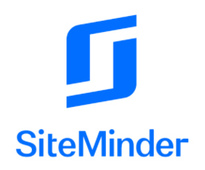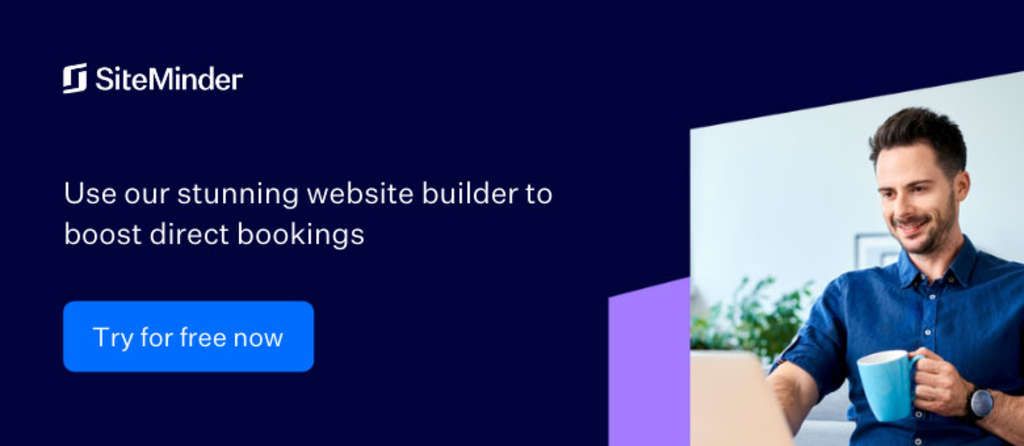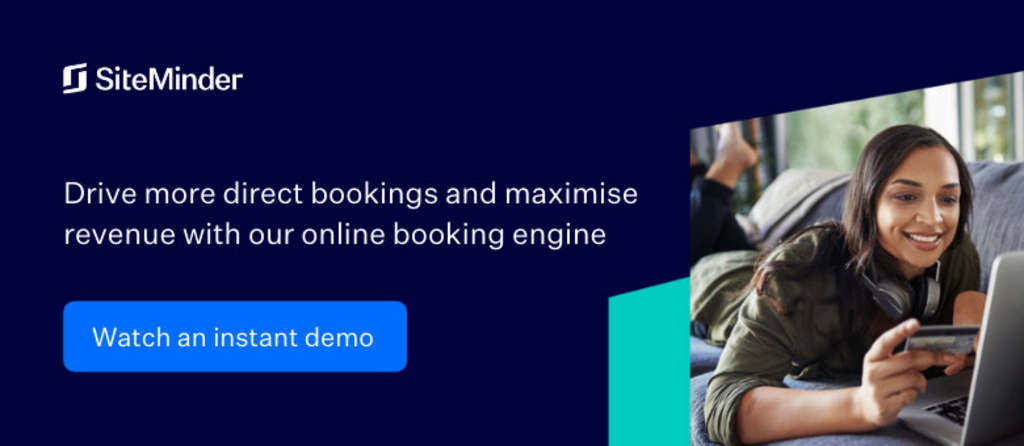How to have a hotel website that drives revenue

Creating a website where travellers can reach you directly is a great step in generating extra revenue for your hotel. However, to really be successful in meeting today’s guest expectations you need to pay particular attention to optimising every element of your website.
Users expect simple yet comprehensive, elegant, and intuitive websites that enable them to find the information they’re looking for. At the same time hoteliers need to have a website that drives significant business results by operating like a real ecommerce website.
This is tied to the fact that a hotel is so much more than rooms and beds – in 2022 your hotel and everything in it is a product that can be made profitable. Your website can help you unlock this revenue if it’s professional, attractive, and fully integrated. There’s a LOT that goes into accomplishing this but it doesn’t have to be as complicated as you think.
Let’s look at what it takes to optimise your website for conversion and how you can achieve it without hassle.
Table of contents
- 1. Core elements of a revenue generating hotel website
- 1.1. Design
- 1.2. Functionality
- 1.3. Discoverability
- 1.4. Responsiveness
- 1.5. Storytelling
- 2. Direct booking integration and conversion optimisation
- 2.1. Tips to increase conversion
Core elements of a revenue generating hotel website
Broadly speaking, there are a number of factors you absolutely need to get right to maximise the number of travellers who make a booking via your website.
Let’s go into detail about five key elements…
Design
First and foremost you need attractive visual elements to capture attention and engage the imagination of your visitors, and features that let them easily find the information they’re looking for.
First impressions are everything on your website. Visitors landing on your web pages will make snap judgements about the quality, professionalism, and suitability of your accommodation based on what they see at first glance.
This is why you need beautiful, stunning, high quality images that are complimented by a simple design that doesn’t overwhelm the eyes or give off ‘busy’ vibes.
Some of the essential parts of your design include:
- A ‘Book Now’ button or similar call-to-action that is clearly visible at all times so travellers can easily convert when they have made a decision
- Clear menu structure that lets visitors quickly access the most important information
- A dedicated amenities page so travellers can see if your property ticks their boxes
- A photo gallery showcasing the very best parts of your property and the local area
- Contact and location details that are easily accessible for guests who have queries or are
- Promotions and offers that guests can take advantage of with one click
- A virtual room tour or a video that has a dash of the local flavour to increase the anticipation of guests
- Include reviews from happy guests or link to your TripAdvisor page
To limit the number of pages you create, make sure you have a blog that can answer most of the hot questions your guests will have. This might include best restaurants nearby, most popular tourist activities, best natural attractions etc.
Functionality
Once your website is looking pretty and has great features you need to think about how it works.
Both booking functionality and the general functionality of your website are vital for conversions – as is personalisation.
Booking functionality needs to offer more than just the basics of choosing and confirming a reservation. You also need to offer guests a level of customisation via your booking engine, such as allowing them to purchase extras, choose add-ons, and have the chance to upgrade. Not only is this a positive experience for the guest but you will earn more revenue too. The whole process should take around three steps to reduce abandonment.
Load times and the navigational aspects of your website are also crucial for keeping your potential guests from clicking off your site in frustration.
Conversion rates are already pretty low at around 2.5% so you want to minimise the amount of people bouncing off your site due to a bad experience. Poor load time also affects your SEO rankings. Here are some quick tips to cut down load time:
- Consider moving to Virtual Server Hosting (VPS) or dedicated sharing.
- Limit HTTPS requests but cutting down on icon boxes, pop-ups, or commenting systems
- Compress and optimise your high res images before uploading them to your site
- Enable caching to reduce server requests
- Reduce white space and redundant content, and limit colour codes
- Don’t go overboard with plug-ins and widgets
Even speeding up your website load time by one second can make a huge difference to your audience retention and conversions. Guests should also be able to find what they’re looking for within a couple of clicks – they shouldn’t have to be five pages deep into your website to find answers.
Adding personalisation functions to your website will take the user experience to another level, once again increasing your conversion rates. Some ways you can add personalisation to your website include:
- Create personalised messages and offers for visitors coming from Facebook or Instagram
- Track and reward repeat website visitors
- Tailor website content to subscriber profiles
- Promote specific deals for specific times or types of stay
You can also personalise and make things easier for guests by auto-filling forms if you have their information already, suggest relevant next articles or pages, and using a friendly chatbot to help users with queries and navigation.
Discoverability
Okay so your website is beautiful and it runs smoothly for users. Now you need people to find it.
SEO is a key element of your website as it ensures travellers can find you organically from Google or other search engines.
Your SEO relies on a number of factors, some of which may not come to mind straight away but are highly valued by Google:
- HTTPS security to assure the protection of guest data
- Unique pages, titles, and descriptions
- Simple, descriptive, and succinct URLs
- Full sitemap for correct indexing
- Optimised images that load quickly
- Fresh, regularly updated, content
- Relevant links and accurate information
- Content that meets the needs of the user
Google’s algorithm is constantly updating, becoming smarter at identifying the most useful content and websites for what people are querying. With this in mind it’s important to make your website as unique, relevant, and accurate as possible.
Business profiles are another great way to get people to your website and strengthen your SEO. Make sure you have:
- Google My Business profile
- Listings on Google Hotel Ads (even a free listing)
- Facebook and Instagram business profiles
Discoverability is not just about SEO however. You need to make sure your OTA profiles are similarly optimised to maximise traffic on these booking channels, which can then lead to an increase in website traffic since many travellers will navigate from OTAs to your own site. Treat your OTA profile like a fully-fledged business profile, almost like an extension of your website, and work with account managers to get extra tips.
You can also build email databases and send out regular communications to keep visitors coming back and seeing what’s new on your website.
Responsiveness
You never know when and where someone will be researching travel and discovering your website. Ensuring your website is positive on all devices will mean you don’t miss out on the vast number of visitors booking on mobile devices.
Consider that 70% of smartphone owners use their device to research travel, and 90% switch between different devices during their research and booking phases of travel planning.
Having a mobile-optimised website means eliminating:
- Small, hard-to-read text that forces users to zoom in and out
- Large images that load slowly
- Small links that are difficult to click
- Lack of ability to quickly connect to your property directly
- Pages that don’t fit the screen and cause people to scroll unnecessarily
Google also now uses the mobile page versions of a domain for indexing and caching in search results, and subsequently, for ranking.
Storytelling
Finally, the way you tell the story of your hotel and sell your experience can be the tipping point for many guests. If your content doesn’t stand out, you’re just another option among many.
You might claim to have the softest pillows in town, but everyone is making that claim. Instead you need to pinpoint what makes your property unique and special and make it known.
- Do you have a famous backstory?
- Is your architecture world-renowned?
- Are you a celebrity hotspot?
- Do you have unique or quirky amenities?
- Do your hotel rooms have themes?
Whatever it is that sets you apart from the competition should flow through every piece of written copy on your website.
If all of this sounds like a whole lot of work – it is made almost effortless with the right technology. Many hotel commerce platforms, such as SiteMinder, offer website builder features that do all the hard work for you.
Direct booking integration and conversion optimisation
Once your website has impressed guests, informed them, and convinced them to book, the booking process itself needs to be fast and simple. Travellers will want to be able to choose their room, add-ons, and pay within a few simple clicks and get their booking confirmation as quickly as possible.
Integrating an online booking engine with your hotel website is the best and easiest way to do this. Your ‘Book Now’ call-to-action can go straight to your booking engine where guests can complete their booking, and you have the opportunity to upsell with extras, packages or upgrades. It’s here where you have the chance to maximise your revenue.
Your booking engine will also send out automated and personalised email communications so guests are kept in the loop about their reservation. On top of this, your booking engine can be used to capture reservations from travellers clicking through from your Facebook page, and also enables plug-ins for live rate shopping, so guests always know they’re getting the best price by booking directly.
Tips to increase conversion
Even if you’ve got everything right, guests might not always be satisfied or ready to book. To further streamline your booking experience and keep guests engaged, here’s a few things you can do:
- Only capture essential details needed for booking – You can always collect additional information later
- Encourage website visitors to join your mailing list – If they don’t convert you can keep working on them
- Add a calendar to your website – Guests might be interested to know of any events in the local area that are coming up or even events in your hotel
- Always share your social media profiles – Building an audience can keep your brand top of mind If they don’t book now, they might in a few months when you have a social media competition or promotion running.
- Integrate measurement tools such as Google Analytics so you can see which web pages are performing and which ones you need to optimise
In the era of hotel commerce it’s vital that your website and booking engine integrate seamlessly so the booking experience remains smooth for your guests. It’s also a good idea to manage your booking engine reservations via a channel manager so you don’t have to manually add data to your PMS or double check inventory all the time.
These are all features that you can find in a modern open hotel commerce platform like SiteMinder.
About SiteMinder
SiteMinder Limited (ASX:SDR) is the name behind SiteMinder, the world's leading hotel distribution and revenue platform, and Little Hotelier, an all-in-one hotel management software that makes the lives of small accommodation providers easier. The global company is headquartered in Sydney with offices in Bangalore, Bangkok, Barcelona, Berlin, Dallas, Galway, London, Manila and Mexico City. Through its technology and the largest partner ecosystem in the global hotel industry, SiteMinder generates more than 125 million reservations worth over US$50 billion in revenue for its hotel customers each year. For more information, visit siteminder.com.



